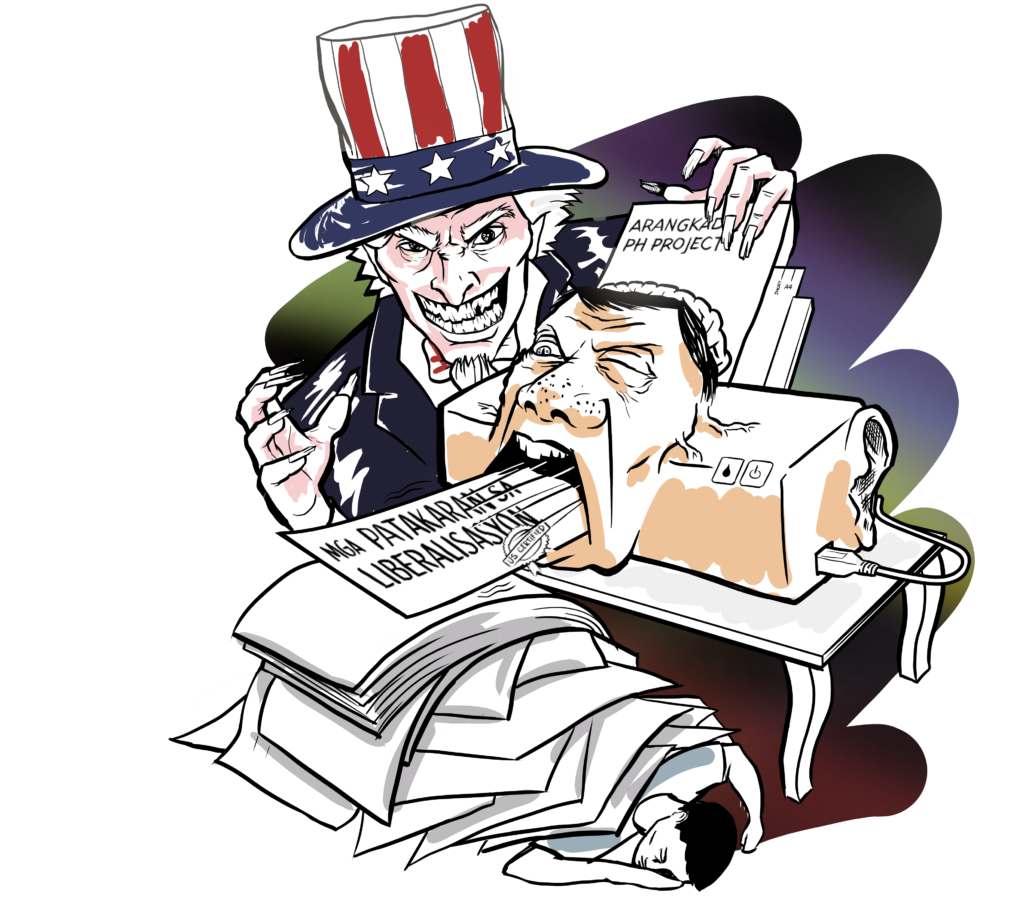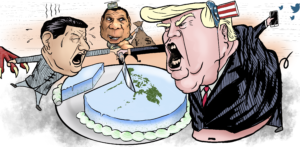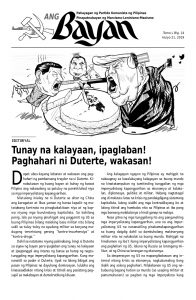Legislative agenda for all-out liberalization


In his upcoming State of the Nation Address this July 22, Rodrigo Duterte is expected to once again demonstrate utter subservience to his US imperialist master by prioritizing the implementation of neoliberal economic reforms which have long been recommended by the US under its The Arangkada Philippines Project (TAPP).
These reforms aim to push for all-out liberalization of the local economy by streamlining or dismantling investment restrictions for multinationals and their subsidiaries. In the past three years, Duterte and various government agencies successively issued executive and administrative orders, respectively, to gradually foist the implementation of this neoliberal scheme.
PSA amendments
Among those targeted for investments by multinationals is the telecommunications and transportation subsector. The said industries are still considered public utilities. Public utilities are defined by reactionary law as “goods or services which satify the needs of a community.” As these are considered strategic enterprises, the 1987 Constitution limits foreign equity on public utilities to 40%. This provision, however, is brazenly violated as many telecommunication and transportation companies are already controlled by foreign capitalists. This is implemented through loans and partnerships with local compradors.
To completely dismantle remaining protections on the subsector, the regime is pushing for the amendment of the Public Service Act (PSA). In compliance with TAPP recommendations, telecommunications and transportation will be removed from the list of public utilities. Its scope will now be limited only to “distribution and transmission of electricity; and water pipeline distribution and sewerage pipeline system. This will allow the full ownership and control over the operation of companies in these industries by foreign capitalists. Duterte’s supermajority failed to railroad the enactment of this proposal before the 17th Congress finally closed last month.
FIA amendments
The US is also pushing for the amendment of the Foreign Investment Act (FIA) to compel the government to more frequently review and shorten the list of restrictions on investment areas and professions that are exclusively for Filipinos. The list, which is called the foreign investment negative list (FINL), prohibits the entry of and full ownership by transnationals in specific enterprises, and the practice of professions to foreign nationals.
It particularly seeks to allow foreign professionals, especially those from imperialist countries, to work in the Philippines and manage the operations of multinationals and their subsidiaries. This poses a threat to the employment of Filipino lawyers, doctors, scientists, engineers and other professionals as they will be compelled to comply with foreign requisites in the guise of promoting “global standards.”
On October 2018, Duterte issued Executive Order 65 which promulgated a shortened FINL. It removed the restriction on five investment areas and activities including internet businesses; teaching non-professional subjects in college; technical vocational training centers that are not part of the formal education system; financing companies; and wellness centers. It also increased the rate of foreign equity allowed on contracts for construction and repair of public-works and development projects from 25% to 40%; and on private radio networks from 20% to 40%.
These aggressive liberalization measures will immediately benefit China through capital investments and its deployment of personnel as per its loan conditions to the regime. Other measures
The US also recommended the amendment of the Retail Trade Liberalization Act. This aims to further lower the capitalization requirement of foreign retail companies from $2.5 million to $200,000.
Duterte is also railroading the passage of the the second TRAIN Law package dubbed as the Trabaho Bill. This aims to lower the corporate income tax rate from 30% to 20% and rationalize the incentives given to corporations operating in special economic zones.
In sum, since he assumed the presidency, Duterte had issued no less than 10 executive orders to pave way for the full liberalization of the local economy.



